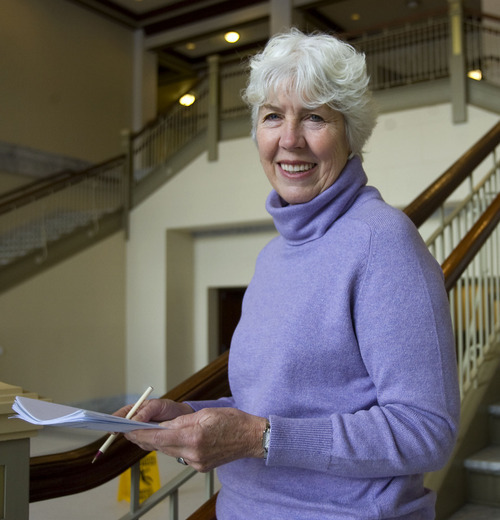This is an archived article that was published on sltrib.com in 2013, and information in the article may be outdated. It is provided only for personal research purposes and may not be reprinted.
It's good for all of us to learn factual information and, thanks to the Salt Lake Tribune's Dec. 7 issue, readers now know that Utah's concealed weapons permit sales have reached a half-million!
Shall we celebrate the reality that so many people in Utah and across the United States have succumbed to the fear generated by an aggressive decades-long campaign by the NRA to promote conceal-carry laws? The primary and intended beneficiaries of this campaign of fear have been the firearms dealers, manufacturers and instructors.
If these permit holders actually decide to purchase and carry a weapon, can we assume that they will get training beyond the cursory requirements necessary for a Utah permit, which doesn't even include live firing? Will they have a safe place to store their weapon(s) when they go to the airport or other restricted places? When they are awakened from a sound sleep, will they be sure to determine it isn't a family member moving in the night before they fire their weapon? If they decide to sell their weapon, will they insist that the buyer has a background check or simply assume that their neighbor has no criminal record or a domestic violence hold?
Most of all, are they aware that, although guns can and have been used successfully in self-defense in the home, a gun in the home is 22 times more likely to be used to kill or injure in a domestic homicide, suicide or unintentional shooting than to be used in self-defense? Tragically, a number of Utah teens have shot themselves and each other in the last few months. How and why did they have access to guns?
Thanks to marketing mavens, will many of those carriers be women, seduced by a lighter and pretty pink weapon? The Law Center to Prevent Gun Violence website reports in annotated studies that women who were murdered were more likely, not less likely, to have purchased a handgun in the three years prior to their deaths. The studies invalidate the idea that a handgun has a protective effect against homicide.
How sadly ironic that this knowledge of the proliferation of conceal-carry permits occurs just as the Dec. 14, first anniversary of the Sandy Hook massacre is commemorated. As we remember that tragedy, we must acknowledge the numbing statistic of more than 32,000 American gun deaths since then. That's about 85 lives lost to gunfire each day; most of which don't make the headlines. The Newtown Action Alliance keeps a running toll on their web site.
In addition to their efforts to publicize the data on gun violence, the people of Newtown and other Connecticut residents have become advocates and were able to convince their state legislature to enact some significant gun-control measures in the past year. They have also been motivated to travel to Washington numerous times to advocate at the federal level, where their efforts have not yet been as successful.
Researchers use the term "intensity gap" to explain the fact that while the majority of Americans support stricter gun laws, few advocate for them or vote on the issue unless they have been personally affected by gun violence. As an example, nine out of 10 agree that we should have universal background checks. Yet, in Utah, and most other states, only gun purchases from licensed dealers are subject to background checks. Thus, we do not know the backgrounds of approximately 40 percent of buyers.
Will it take another Trolley Square-type mass killing to close that intensity gap in Utah? Are we willing to wait to have a family member become a victim before we are motivated to learn more of the facts about the toll of gun injuries and deaths and to speak out to our policy makers on this reality?
Dee Rowland recently retired as government liaison for the Salt Lake City Catholic Diocese and is volunteer chair of the Gun Violence Prevention Center of Utah.



